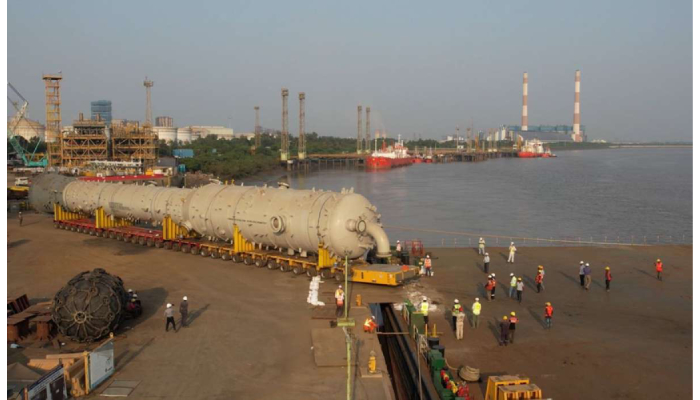How Does A Reliable Logistics Service Provider Support International Shipping Success?
In today’s globalized economy, international shipping is crucial in connecting businesses with global markets. Companies rely on seamless transportation of goods across borders to meet customer demands, optimize supply chains, and stay competitive. A dependable logistics service provider is the backbone of this process, ensuring efficient, cost-effective, and timely delivery of goods. From handling documentation to navigating customs regulations and managing transportation networks, logistics service providers enable businesses to overcome international shipping challenges with ease.
The Role Of A Logistics Service Provider In International Shipping
A logistics service provider is responsible for overseeing and coordinating the movement of goods across international borders. Their expertise in freight forwarding, customs brokerage, warehousing, and distribution ensures that businesses can ship their products efficiently without disruptions. Their role extends beyond transportation; they also provide strategic solutions to mitigate risks and improve supply chain efficiency.
Key functions of a logistics service provider in international shipping include:
- Freight forwarding and carrier management
- Customs clearance and compliance
- Inventory and warehouse management
- Real-time tracking and monitoring
- Risk management and contingency planning
Streamlining International Shipping Processes
One of the primary advantages of working with a logistics service provider is the ability to streamline complex international shipping processes. Businesses often struggle with the intricate documentation, regulatory requirements, and logistical challenges associated with global trade. A logistics partner simplifies these processes by:
- Managing Documentation: International shipping requires various documents such as commercial invoices, packing lists, bills of lading, and certificates of origin. A logistics service provider ensures that all paperwork is accurately prepared and submitted.
- Ensuring Compliance: Customs regulations vary from country to country, making compliance a critical aspect of international trade. Logistics service providers have extensive knowledge of global trade laws, helping businesses avoid fines and delays.
- Optimizing Transportation: Selecting the right transportation mode—air, sea, rail, or road—is crucial for cost-effective and timely delivery. Logistics experts analyze factors such as cost, transit time, and reliability to determine the best shipping routes.
Enhancing Supply Chain Efficiency
A well-managed supply chain is essential for businesses to succeed in international markets. A logistics service provider enhances supply chain efficiency by offering solutions tailored to specific business needs. These include:
- Inventory Management: Warehousing and distribution services ensure that businesses maintain optimal inventory levels, reducing storage costs and preventing stockouts.
- Technology Integration: Advanced logistics providers use real-time tracking systems, artificial intelligence (AI), and automation to enhance supply chain visibility and predict disruptions before they occur.
- Reverse Logistics: Handling product returns efficiently is just as important as shipping goods. Logistics service providers streamline reverse logistics to ensure hassle-free returns and exchanges, enhancing customer satisfaction.
Cost-Effective International Shipping Solutions
Managing international shipping costs is a major concern for businesses. Without a strategic approach, shipping expenses can quickly add up, affecting profitability. Partnering with a logistics service provider helps businesses save costs through:
- Consolidation Services: Combining multiple shipments into one reduces transportation costs and maximizes container space utilization.
- Negotiated Freight Rates: Logistics providers have established relationships with carriers, allowing them to negotiate lower shipping rates and pass the savings onto businesses.
- Route Optimization: Choosing the most efficient shipping routes minimizes transit time and reduces fuel costs, leading to overall savings.
- Minimizing Customs Duties and Tariffs: By classifying goods correctly and taking advantage of trade agreements, logistics providers help businesses reduce customs fees and taxes.
Facilitating Smooth Customs Clearance
Customs clearance is a complex and time-sensitive process in international shipping. Failure to comply with regulations can result in penalties, shipment delays, or even confiscation of goods. A logistics service provider simplifies customs clearance by:
- Handling Documentation: Ensuring all required documents are complete and submitted to authorities on time.
- Classifying Goods Properly: Assigning the correct Harmonized System (HS) codes to products to avoid misclassification penalties.
- Managing Duties and Taxes: Calculating and paying the appropriate tariffs to prevent customs-related delays.
- Leveraging Free Trade Agreements (FTAs): Identifying opportunities to minimize duties through trade agreements between countries.
Leveraging Technology For Smarter Logistics
The logistics industry has undergone a digital transformation, with technology playing a key role in enhancing efficiency and transparency. A modern logistics service provider utilizes:
- Real-Time Tracking Systems: GPS tracking and Internet of Things (IoT) devices provide businesses with real-time visibility of their shipments.
- Artificial Intelligence (AI) and Predictive Analytics: AI-driven algorithms analyze shipping patterns to predict potential disruptions and recommend alternative routes.
- Blockchain for Transparency: Secure digital ledgers ensure transparency in transactions and prevent fraud in global trade.
- Automated Freight Management: AI-powered automation streamlines freight booking, scheduling, and invoicing, reducing human error and delays.
Choosing The Right Logistics Service Provider
Selecting the right logistics service provider is crucial for businesses aiming to succeed in international shipping. Key factors to consider include:
- Industry Experience: A provider with experience in international shipping understands the complexities of global trade and regulatory compliance.
- Network and Infrastructure: A strong global network of carriers, warehouses, and distribution centers ensures seamless logistics operations.
- Technology Capabilities: The use of advanced logistics technology improves efficiency and enhances shipment visibility.
- Customer Support: Responsive and knowledgeable customer support is essential for resolving shipping issues quickly.
- Cost and Value Proposition: Comparing pricing structures and service offerings helps businesses choose a provider that aligns with their budget and needs.
Conclusion
A reliable logistics service provider is an indispensable partner for businesses engaged in international shipping. By offering expertise in freight management, customs clearance, risk mitigation, and supply chain optimization, they help businesses navigate the complexities of global trade efficiently. With the integration of advanced technology, cost-effective strategies, and a proactive approach to risk management, logistics service providers play a crucial role in ensuring international shipping success. Choosing the right logistics partner can significantly impact a company’s ability to expand globally, meet customer demands, and maintain a competitive edge in the market.





